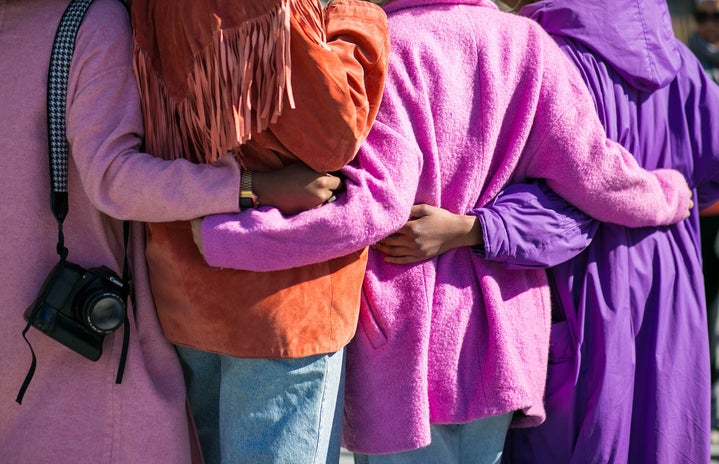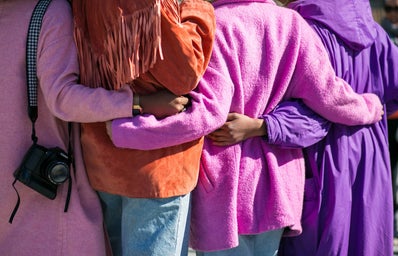In contemporary Britain, there are still patriarchal influences that exist on both a micro and macro scale, from the nuclear family structure to the government. Today in the UK government, the proportion of men stands at 66%. This figure is extremely telling; explaining how society is still based on the desires of the majority of those in power, men.
Despite the West’s patriarchal society, there are many female-led communities worldwide, where historically, women have been honoured for their childbearing capabilities and have now progressed to their strength in leading social, political and economic elements of society across the world. There are eight famous matriarchal communities worldwide, yet this number will be infinitely higher outside of westernised media. I found it essential to research a society that does not exclude men, to see how men live under a matriarchal rule.
What is a matriachal community?
A matriarchal community acts as a matriarchy, in which the mother, grandmother, or the eldest female has authority over the family. Their form of government is one or a group of women that rule the community.
The largest matriarchal community in the world is the indigenous tribe of Minangkabau, Indonesia, and in the early twenty-first century, approximately eight million people were living there. The community generally practice Islam alongside Adat, which is a system based around nature that gives men and women joint responsibility and matrilineally, meaning family history is traced through the female line. Minangs also follow Hinduism and Buddhism.
Fathers live alongside the mother in the maternal relative’s home, but only as a wife’s nighttime guest. The community traditionally live together in a house, which is ruled by a head-woman and her female family members, and men are raised in the family until they are circumcised. They are then expected to live in the local mosque or other religious building or move away to study and work until they marry and join their wife’s ancestral home. Men will often move to towns or cities in Indonesia to search for better work and educational opportunities, while women remain to look after the home and family. When a couple marry, the male’s parents receive a dowry, based on the education and status of the groom. Gifts are given at the wedding such as sprouting plants or produce to represent fertility, and the groom is referred to as a ‘cock’ to describe his role as inseminator. The women carry a cooked chicken to symbolise the power of women to nurture. The husband lives in the wives’ family home and are expected to financially provide for their wife and children’s home. In the rare event of a divorce, the male is expected to remove any belongings from the females home.
Although women are valued equally, if not more highly, than men in society, men hold more ‘public power’ roles. Men outwardly appear to have more power, but this is based on being the ‘front-man’ to the wider religion of Islam and the state, where traditionally men would hold roles of power. However, power and authority are shared based on mutual responsibility and interdependence. Although men have higher positions in government, religion and leadership, women own property and land and control the family’s decisions, which creates an equal balance of power and ensures their strength is similar. Men cannot make social decisions without consulting a board of women for their consent, yet women lead the domestic sphere, including community ceremonies and owning resources.
As the Minangs demonstrate, community living creates a sense of joint responsibility between women in society, especially in the instance of raising children and domestic responsibilities, as well as disallowing women to have an unequal power dynamic by men holding social roles power. Perhaps sending the male child outside of the home perpetuates aspects of toxic masculinity, such as hiding emotion or demonstrating stereotypical ‘male’ character traits.
As a mainly Islam society, it is clear that women are not always suppressed and undervalued due to religion as western culture suggests. This is a clear example of how religion can be part of a society that empowers women and allows them to take responsibility for finances and governmental positions of power as advisors to the men. However, I do see how women could benefit from being active leaders in the broader sense, being valued for their intelligence and financial power.
This article is part of a themed content week for Women’s History Month.


